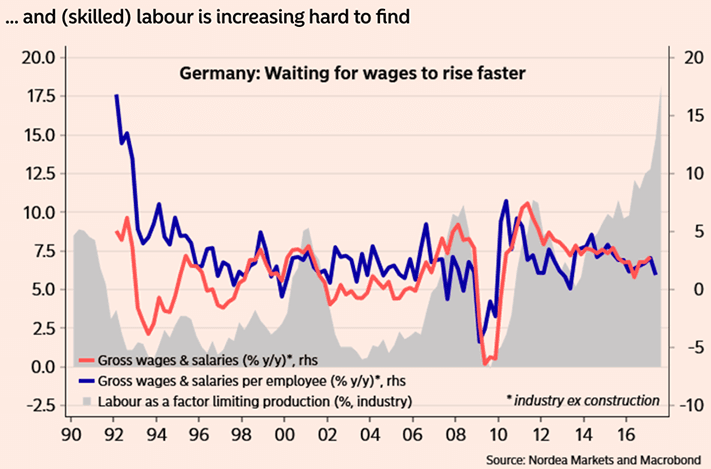Euro Strength Fades on German GDP Miss, But Make no Mistake, the Economy is Booming

German economic growth for the second-quarter 2017 read at 0.6% which will disappoint some in the market as consensus forecasts for the figure were for growth to come in at 0.7%.
The negative headline is compounded by the annualised figure which stands at 0.8%, less than the 1.9% forecast by markets.

The data might go some way in explaining the Euro exchange rate complex’s dour performance on Tuesday, August 15.
The Euro to Dollar exchange rate reads at 1.1739, down 0.34%, the Euro to Pound Sterling exchange rate reads at 0.9061, down 0.28%.
What is interesting is the negative contribution of trade to growth. Germany is Europe’s export giant, but a growing taste for foreign imports appears to be growing.
According to provisional calculations from Destatis, the development of foreign trade, however, had a downward effect on growth because the price-adjusted quarter-on-quarter increase in imports was considerably larger than that of exports.
The increase in imports is reflected in domestic demand which made a positive contribution to growth.
This suggests perhaps the massive current account surplus based by Germany might close a little in the future.
“The quarter-on-quarter comparison (upon adjustment for price, seasonal and calendar variations) shows that positive contributions came from domestic demand. Final consumption expenditure of both households and general government increased markedly,” report Destatis.
The slowdown in exports and rise in imports could be a result of the Euro's recent appreciation, but economists see the impact of the rising Euro having a limited impact.
"The risks from a stronger euro exchange rate and the dependence of the German car industry on the diesel engine are manageable. The recovery in global trade will outweigh the headwinds coming from FX markets. The recently offered auto rebates may even lead to a frontloading of car purchases and temporarily lift GDP growth after the summer break," says Dr. Andreas Rees, Chief German Economist at UniCredit Bank in Frankfurt.
Holger Sandte, an economist with Nordea Markets says the economy is booming and forward indicators might point to some slowdown ahead, but nothing substantial.
“More and more companies are reporting that finding (skilled) labour becomes harder and harder. Wages growth is still moderate, but could increase during the coming quarters, reflecting a tightening labour market,” says Sandte.

This should catch the interest of those watching the Euro.
Higher wages in the future would inevitably lead to higher core inflation which would justify the European Central Bank’s expected withdrawal of stimulus.
The Euro has been rallying through 2017 in anticipation of this withdrawal, and this data suggests traders are playing the correct game.
So while today's headlines on German growth data might be negative, the bigger picture is certainly supportive for the Euro.




